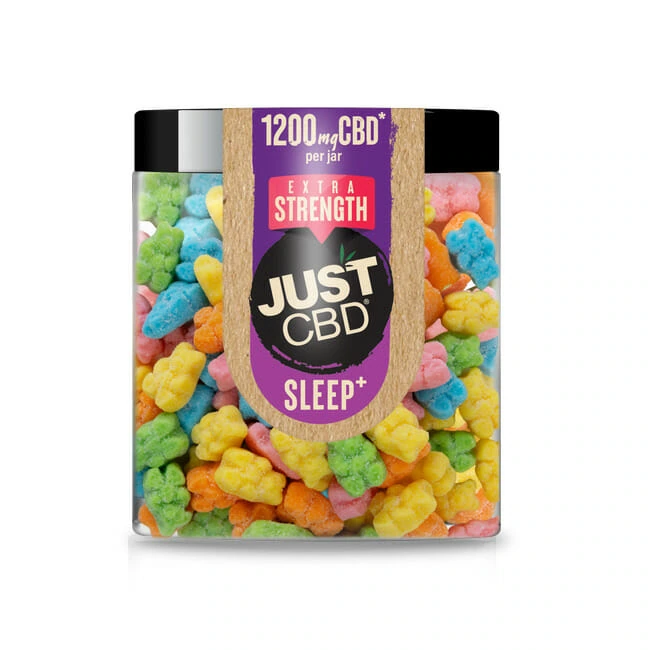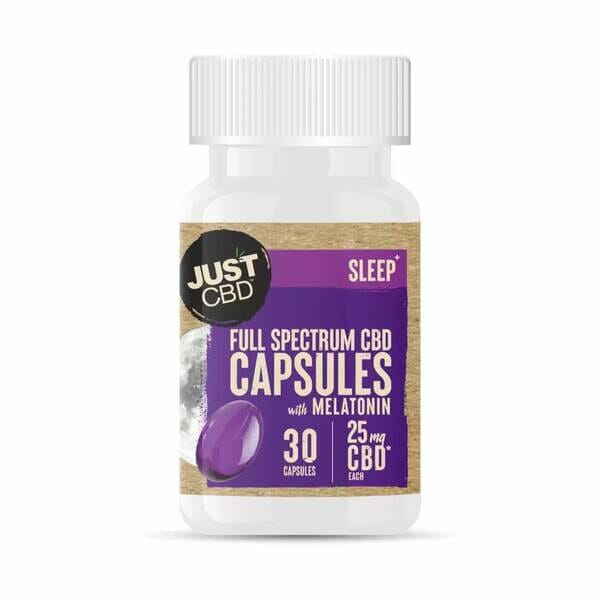Sleep is a vital component of overall health and well-being, yet millions of people worldwide struggle with sleep disorders. Cannabidiol (CBD), a non-psychoactive compound derived from the cannabis plant, has emerged as a promising natural remedy for those seeking better sleep. This guide explores how CBD works to support restful sleep, its potential benefits, and practical advice for its use.
Understanding Sleep Disorders and Their Impact
Sleep disorders, such as insomnia, sleep apnea, and restless legs syndrome, can have profound effects on physical and mental health. Chronic sleep deprivation is linked to a higher risk of heart disease, diabetes, depression, and cognitive decline.
Common Types of Sleep Disorders
- Insomnia: Difficulty falling or staying asleep.
- Sleep Apnea: Interrupted breathing during sleep, leading to poor quality rest.
- Restless Legs Syndrome: Uncontrollable urge to move the legs, often disrupting sleep.
- Narcolepsy: Excessive daytime sleepiness and sudden sleep attacks.
Causes of Sleep Disorders
Sleep disturbances can stem from various factors, including stress, anxiety, lifestyle habits, medical conditions, and environmental issues.
What is CBD?
CBD is one of over 100 cannabinoids found in the cannabis plant. Unlike THC, the psychoactive component of cannabis, CBD does not induce a “high.” Instead, it is valued for its potential therapeutic properties, including its calming effects on the nervous system.
How CBD Works in the Body
CBD interacts with the endocannabinoid system (ECS), a complex cell-signaling system that plays a role in regulating sleep, mood, and pain. By influencing ECS receptors, CBD may help restore balance and improve sleep quality.
How CBD Supports Sleep
CBD’s potential to enhance sleep lies in its ability to address underlying factors that disrupt sleep, such as anxiety, pain, and poor sleep cycles.
Reducing Anxiety and Stress
Anxiety is a common culprit behind sleepless nights. CBD has been shown to have anxiolytic (anxiety-reducing) effects, helping individuals relax and prepare for restful sleep.
Managing Chronic Pain
Chronic pain conditions can prevent a good night’s rest. CBD’s anti-inflammatory and analgesic properties may reduce pain, making it easier to fall and stay asleep.
Regulating Sleep-Wake Cycles
CBD may influence the sleep-wake cycle by interacting with brain receptors involved in the regulation of circadian rhythms, promoting more consistent sleep patterns.
Promoting REM Sleep
Studies suggest that CBD can increase REM (rapid eye movement) sleep, the stage associated with dreaming and memory consolidation, without causing disruptions.
Benefits of CBD for Sleep
Using CBD as a sleep aid offers several advantages, especially for those seeking natural alternatives to prescription medications.
- Non-Habit Forming: Unlike some sleep aids, CBD does not lead to dependency or withdrawal symptoms.
- Minimal Side Effects: CBD is generally well-tolerated with fewer side effects compared to pharmaceutical options.
- Customizable Usage: CBD products come in various forms, allowing users to choose what works best for them.
- Improved Overall Well-Being: Beyond better sleep, CBD may enhance mood, reduce stress, and alleviate physical discomfort.
Choosing the Right CBD Product for Sleep
Selecting the right CBD product is crucial for achieving desired results. Here are factors to consider:
Types of CBD
- Full-Spectrum CBD: Contains all cannabinoids, including trace THC, which may enhance effectiveness through the “entourage effect.”
- Broad-Spectrum CBD: Includes multiple cannabinoids but no THC, suitable for those avoiding THC.
- CBD Isolate: Pure CBD with no additional cannabinoids or compounds.
Product Forms
- CBD Oil/Tinctures: Administered sublingually for fast absorption.
- CBD Capsules: Convenient and easy to dose.
- CBD Edibles: Gummies or other treats that are tasty but may take longer to act.
- CBD Topicals: Applied directly to the skin, helpful for localized pain affecting sleep.
Dosage Considerations
Finding the right dose is essential for effectiveness. Start with a low dose (10-20 mg) and gradually increase until you achieve the desired results. Always consult with a healthcare professional for personalized guidance.
How to Use CBD for Sleep
Timing Matters
Take CBD 30-60 minutes before bedtime to allow it to take effect. For faster results, opt for sublingual tinctures or oils.
Combine with Relaxation Techniques
Enhance the benefits of CBD by incorporating relaxation practices such as meditation, deep breathing, or a warm bath before bed.
Create a Sleep-Friendly Environment
Optimize your sleep space by reducing noise, minimizing light exposure, and maintaining a comfortable temperature.
Safety and Potential Side Effects
While CBD is considered safe for most people, some may experience mild side effects, including:
- Dry mouth
- Drowsiness
- Changes in appetite
- Diarrhea
To minimize risks, choose high-quality CBD products that have been third-party tested and follow the recommended dosage.
Common Myths About CBD for Sleep
Myth: CBD Works Instantly for Everyone
The effects of CBD can vary based on individual factors such as metabolism, body weight, and the severity of sleep issues. It may take time to find the optimal dosage and form.
Myth: More CBD Equals Better Sleep
Higher doses are not always more effective. Start with a small dose and adjust gradually for the best results.
Myth: CBD Causes Daytime Drowsiness
CBD generally promotes relaxation without impairing daytime alertness. However, effects can vary depending on the dose and individual response.
My Personal Review of Just CBD’s Sleep Products
As someone who has struggled with sleepless nights, I decided to give Just CBD’s sleep products a shot. Their lineup offers a variety of options to suit different preferences, so I was excited to see how each product performed. Here’s my honest review of what worked, what didn’t, and how each product compares.
Nighttime CBD Oil Tincture with Melatonin
Shop Here
The Nighttime CBD Oil Tincture with Melatonin was the first product I tried. I’m a fan of tinctures because they’re fast-acting, and this one didn’t disappoint. After placing a few drops under my tongue, I started to feel calmer within 20–30 minutes.
What I liked:
- It worked quickly to ease my racing thoughts, helping me relax after a hectic day.
- The addition of melatonin made it effective for promoting deeper sleep.
- The flavor was mild and didn’t leave an unpleasant aftertaste.
What I didn’t like:
- The dropper could use some improvement for more precise dosing.
Overall, this tincture became my go-to on nights when I needed quick relief to unwind.
CBD Gummies for Sleep
Shop Here
Next up were the CBD Gummies for Sleep. I’m a sucker for anything that feels like a treat, and these fruity gummies fit the bill perfectly. They combine CBD with melatonin, making them both delicious and functional.
What I liked:
- The fruity flavors were fantastic and made taking CBD a fun experience.
- They provided a gentle and gradual transition into relaxation and sleep.
- They’re easy to dose—one or two gummies did the trick for me.
What I didn’t like:
- They took about an hour to kick in, so they’re not ideal for last-minute use.
These gummies are perfect for people who like to plan their nighttime routine and want a tasty way to relax.
CBD Gummies for Sleep Extra Strength

When I needed something more powerful, I turned to the CBD Gummies for Sleep Extra Strength. These pack a higher dose of CBD, which I found especially helpful on nights when stress or restlessness was at its peak.
What I liked:
- The extra potency meant faster and more noticeable effects.
- I appreciated that I didn’t need to take as many gummies to get results.
- They helped me not just fall asleep but stay asleep longer.
What I didn’t like:
- The stronger dose might be too much for beginners, so proceed with caution if you’re new to CBD.
These gummies were a lifesaver on tougher nights and are a great option if you need extra support.
Full Spectrum CBD Capsules with Melatonin

Lastly, I tried the Full Spectrum CBD Capsules with Melatonin. Capsules are great for convenience, and these didn’t disappoint. They’re perfect for when I didn’t feel like dealing with tinctures or gummies.
What I liked:
- Super easy to incorporate into my nightly routine—just take one and go.
- The full-spectrum CBD combined with melatonin helped me stay asleep through the night.
- They’re travel-friendly and mess-free, making them ideal for on-the-go use.
What I didn’t like:
- The capsules take a bit longer to kick in, so plan ahead.
- They don’t offer the same “fun factor” as the gummies, but that’s just a personal preference.
If you’re someone who values simplicity and consistency, these capsules are an excellent choice.
My Overall Thoughts
Trying out Just CBD’s sleep products was a fantastic experience, and I found each product has its strengths depending on the situation:
No matter what your sleep challenges are, Just CBD has something for everyone. I recommend trying out a few products to see what works best for you!
What is CBD, and how does it help with sleep disorders?
CBD, or cannabidiol, is a compound derived from the cannabis plant. It interacts with the endocannabinoid system in the body, which helps regulate various functions, including sleep. By reducing anxiety, calming the mind, and promoting relaxation, CBD can improve sleep quality and make it easier to fall and stay asleep.
Is CBD safe to use for sleep?
Yes, CBD is generally considered safe when used responsibly. It is non-intoxicating and has a low risk of side effects. However, it’s always recommended to consult with a healthcare provider, especially if you’re pregnant, nursing, or taking medications.
How long does it take for CBD to work for sleep?
The time it takes for CBD to work varies based on the product type and individual metabolism. Tinctures and oils usually take effect within 15–30 minutes, while edibles like gummies or capsules can take 30 minutes to an hour.
What’s the best CBD dosage for sleep?
The ideal CBD dosage for sleep depends on factors like your body weight, metabolism, and severity of sleep issues. Beginners should start with a low dose, such as 10–20 mg, and gradually increase until the desired effects are achieved.
Can CBD replace prescription sleep aids?
CBD may be a natural alternative for some people who experience mild to moderate sleep disturbances. However, it is not a substitute for prescription sleep aids for severe conditions. Always consult your doctor before making changes to your treatment plan.
Are there any side effects of using CBD for sleep?
Most people tolerate CBD well, but side effects can include drowsiness, dry mouth, or mild digestive issues. These effects are usually rare and mild, especially when starting with a low dose.
Can I use CBD every night to help me sleep?
Yes, many people use CBD nightly to improve sleep quality. As it is non-habit-forming, CBD can be a sustainable part of your bedtime routine. However, regular check-ins with a healthcare professional are recommended.
What type of CBD product is best for sleep?
Tinctures, gummies, capsules, and full-spectrum products with added melatonin are particularly effective for sleep. The choice depends on personal preferences and how quickly you need the effects to kick in.
Will CBD make me feel groggy in the morning?
When taken in the appropriate dose, CBD is unlikely to cause morning grogginess. In fact, many users report feeling more refreshed and well-rested after using CBD for sleep.
Is CBD legal to use for sleep?
Yes, CBD derived from hemp and containing less than 0.3% THC is legal in many countries, including the United States. However, laws can vary by location, so it’s important to verify the regulations in your area before purchasing or using CBD.
Freddie Scott is a Global Beauty Expert with a wealth of knowledge in international beauty trends and practices. He shares insights into innovative techniques and products, bridging global beauty cultures to inspire and empower individuals worldwide.
Latest posts by Freddie Scott
(see all)



